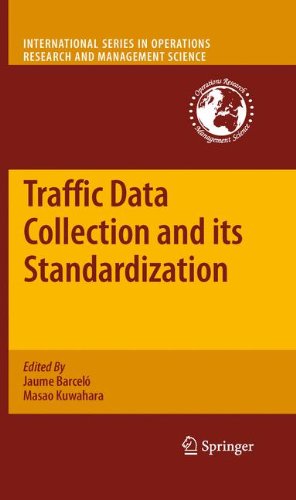

Most ebook files are in PDF format, so you can easily read them using various software such as Foxit Reader or directly on the Google Chrome browser.
Some ebook files are released by publishers in other formats such as .awz, .mobi, .epub, .fb2, etc. You may need to install specific software to read these formats on mobile/PC, such as Calibre.
Please read the tutorial at this link: https://ebookbell.com/faq
We offer FREE conversion to the popular formats you request; however, this may take some time. Therefore, right after payment, please email us, and we will try to provide the service as quickly as possible.
For some exceptional file formats or broken links (if any), please refrain from opening any disputes. Instead, email us first, and we will try to assist within a maximum of 6 hours.
EbookBell Team

4.3
18 reviewsThis book contains twelve selected papers presented at the International Workshop on Traffic Data Collection and its Standardization held on September 8-9th 2008 in Barcelona. Organized and chaired by Barcelo and Kuwahara, the workshop was intended to examine the purposes and quality of data and how it is collected and used in traffic analysis, with the overall intent of improving and standardizing the practice.
Traffic data is the cornerstone to everything from the most classical traffic control analysis to the most advanced real-time control and management implementing modern Intelligent Transportation Systems (ITS) applications. These applications are primarily based on the availability of traffic data supplied by a Data Collection System which, equipped with more or less sophisticated technologies, provides measurements on the fundamental traffic variables, ideally with the required level of temporal aggregation, and perhaps, when the technology allows it, additional measurements on other variables of interest, depending on the type of application in which they will be used. The applications are in turn supported by models, and in fact the primary use of the data is to provide the input to traffic models whose quality depends on the quality, consistency, robustness, completion and other characteristics of the data.